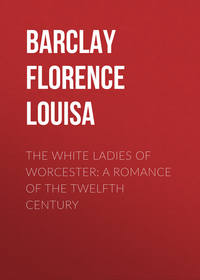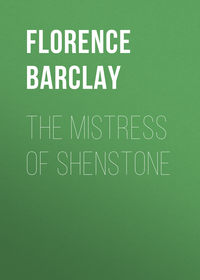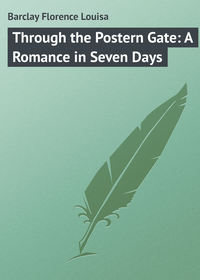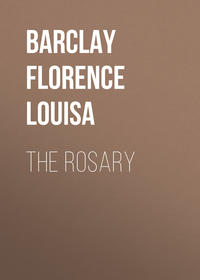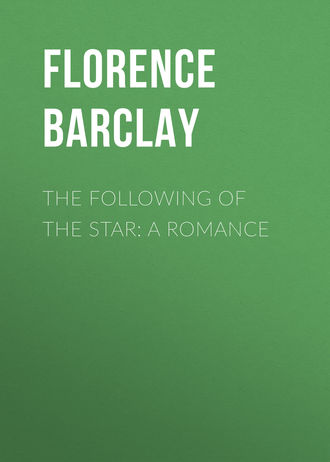 полная версия
полная версияThe Following of the Star: A Romance
"How well I could now understand my grandfather's silent fury, and my mother's remorseful bitterness! By her own infidelity, she had made herself the niece of the man whose wife she might have been, and whose wealth, position, and power would all have been laid at her feet. Also, I am inclined to think she had not been long in realising and regretting the treasure she had lost, in the love of the older man. I always knew mamma had few ideals, and no illusions. Many of my own pronounced views on the vital things in life are the product of her disillusionising philosophy. Poor mamma! Oh, Cousin David, I see it hurts you each time I say 'poor mamma'! Yet you cannot know what it means, when one's kindest thoughts of one's mother must needs be prefixed by the adjective 'poor.' Yes, I know it is a sad state of things when pity must be called in to soften filial judgment. But then life is full of these sad things, isn't it? Anyway I have found it so. Had my mother left me one single illusion regarding men and marriage, I might not now find myself in the difficult position in which I am placed to-day.
"However, for one thing I have always been thankful – one hour when I can remember my mother with admiration and respect: that morning at breakfast, in our humble suburban villa, when she tore up and flung to the flames Uncle Falcon's cheque for a thousand pounds.
"A close intimacy, and a deep, though undemonstrative, affection, soon arose between Uncle Falcon and myself. His life-long fidelity to his love for my mother seemed to transfer itself to me, and to be at last content in having found an object. My every wish was met and gratified. He insisted upon allowing me a thousand a year, merely as pocket-money, while still defraying all large expenses for me, himself. Hunters, dogs, everything I could wish, were secured and put at my disposal. His last gift to me was the motor-car which brought you here to-day.
"His sense of humour was delightful; his shrewd keen judgment of men and things, instructive and entertaining. But – he had one peculiarity. So sure was he of his own discernment, and so accustomed to bend others to his iron will, that if one held a different view from his and ventured to say so, he could never rest until he had won in the argument and brought one round to his way of thinking. He was never irritable over the point; he kept his temper, and controlled his tongue. But he never rested until he had convinced and defeated a mental opponent.
"He and I agreed upon most subjects, but there was one on which we differed; and Uncle Falcon could never bring himself to let it be. In spite of his own hard experience and consequent bachelorhood, – perhaps because of it, – he was an ardent believer in marriage. He held that a woman was not meant to stand alone; that she missed her proper vocation in life if she refused matrimony; and that she attained her full perfection only when the marriage tie had brought her to depend, for her completion and for her happiness, upon her rightful master – man.
"On the other hand, I, as you may have discovered, Cousin David, regard the whole idea of marriage with abhorrence. I hold that, as things now stand in this civilization of ours, a woman's one absolute right is her right to herself. She is her own inalienable possession. Why should she give herself up to a man; becoming his chattel, to do with as he pleases? Why should she lose all right over her own person, her own property, her own liberty of action and regulation of circumstance? Why should she change her very name for his? If the two could stand on a platform of absolute independence and equality, the thing might be bearable – for some. It would still be intolerable to me! But, as the law and social usage now stand, marriage is – to the woman – practically slavery; and, therefore, an unspeakable degradation!"
Diana's eyes flashed; her colour rose; her firm chin seemed more than ever to be moulded in marble.
David, sole representative of the tyrant man, quailed beneath the lash of her indictment. He knew Diana was wrong. He felt he ought to say that marriage was scriptural; and that woman was intended, from the first, to be in subjection to man. But he had not the courage of his convictions; nor could he brook the thought of any man attempting to subjugate this glorious specimen of womanhood, invading her privacy, or in any way presuming to dispute her absolute right over herself. So he shrank into his large armchair, and took refuge in silence.
"When I proclaimed my views to Uncle Falcon," continued Diana, "he would hear me to the end, and then say: 'My dear girl, after the manner of most women orators, you mount the platform of your own ignorance, and lay down the law from the depths – or, perhaps I should say, shallows – of your own absolute inexperience. Get married, child, and you will tell a different story.'
"Then Uncle Falcon set himself to compass this result, but without success. However profound might be my inexperience, I knew how to keep men at arm's length, thank goodness! But, as the happy years went by, we periodically reverted to our one point of difference. At the close of each discussion, Uncle Falcon used to say: 'I shall win, Diana! Some day you will have to admit that I have won.' His eyes used to gleam beneath his shaggy brows, and I would turn the subject; because I could not give in, yet I felt it was becoming almost a mania with Uncle Falcon.
"It was the only thing in which I failed to please him. His pride in my riding, and in anything else I could do, was touching beyond words. He remodelled the kennels, and financed the hunt in our neighbourhood, on condition that I was Master.
"One day his speech suddenly became thick and difficult. He sent for Mr. Inglestry, our old family friend and adviser, and was closeted with him for over an hour.
"When Mr. Inglestry came out of the library, his face was grave; his manner, worried.
"'Go to your uncle, Miss Rivers,' he said. 'He has been exciting himself a good deal, over a matter about which I felt bound to expostulate, and I think he needs attention.'
"I went into the library.
"Uncle Falcon's eyes were brighter than ever, though his lips twitched. 'I shall win, Diana,' he said. 'Some day you will have to admit that I have won. You will have to say: "Uncle Falcon, you have won."'
"I knelt down in front of him. 'No other man will ever win me, dear. So I can say it at once. Uncle Falcon, you have won.'
"'Foolish girl!' he said; then looked at me with inexpressible affection. 'I w-want you to be happy,' he said. 'I w-want you to be as h-happy as I would have made Geraldine.'
"Geraldine was my mother.
"On the following day, Uncle Falcon sent for another lawyer, a young man just opening a practice in Riversmead. He arrived with his clerk, but only spent a very few minutes in the library, and as we have never heard from him since, no transaction of importance can have taken place. Mr. Inglestry had the will and the codicil.
"A few nights later, I was summoned to my uncle's room. He neither spoke nor moved again; but his eyes were still bright beneath the bushy eyebrows. He knew me to the end. Those living eyes, in the already dead body, seemed to say: 'Diana, I shall win.'
"At dawn, the brave, dauntless soul left the body, which had long clogged it, and launched out into the Unknown. My first conscious prayer was: that he might not there meet either my father or my mother, but some noble kindred spirit, worthy of him. Cousin David, you would have liked Uncle Falcon."
"I am sure I should have," said David Rivers.
"Go into the library," commanded Diana, "the door opposite the dining-room, and study the portrait of him hanging over the mantel-piece, painted by a famous artist, two years ago."
David went.
Diana rang, and sent for a glass of water; went to the window, and looked out; crossed to a mirror, and nervously smoothed her abundant hair. Hitherto she had been cantering smoothly over open country. Now she was approaching the leap. She must keep her nerve – or she would find herself riding for a fall.
"Did you notice his eyes?" she asked, as David sat down again.
"Yes," he answered; "wonderful eyes; bright, as golden amber. You must not be offended – you would not be, if you could know how beautiful they were – but the only eyes I ever saw at all like them, belonged to a Macacus Cynomolgus, a little African monkey – who was a great pet of mine."
"I quite understand," said Diana. "I know the eyes of that species of monkey. Now, tell me? Did Uncle Falcon's amber eyes say anything to you?"
"Yes," said David. "It must have been simply owing to all you have told me. But, the longer I looked at them – the more clearly they said: 'I shall win.'"
"Well, now listen," said Diana, "if my history does not weary you. When Mr. Inglestry produced Uncle Falcon's will, he had left everything to me: Riverscourt, the whole estate, the four livings of which he held the patronage, and – his immense fortune. Cousin David, I am so rich that I have not yet learned how to spend my money. I want you to help me. I have indeed the gift of gold to offer to the King. I wish you to have, at once, all you require for the church, the schools, the printing-press, and the boat, of which you spoke. And then, I wish you to have a thousand a year – two, if you need them – for the current expenses of your work, and to enable you to have a colleague. Will you accept this, Cousin David, from a grateful heart, guided by you, led by the Star, and able to-day to offer it to the King?"
At first David made no reply. He sat quite silent, his head thrown back, his hands clasping his knee; and Diana knew, as she watched the working of the thin white face, that he was striving to master an emotion such as a man hates to show before a woman.
Then he sat up, loosing his knee, and answered very simply:
"I accept – for the King and for His work, Miss Rivers; and I accept on behalf of my poor eager waiting people out there. Ah, if you could know how much it means – !" His voice broke.
Diana felt the happy tears welling up into her own eyes.
"And we will call the church," said David, presently, "the Church of the Holy Star."
"Very well," said Diana. "Then that is settled. You have helped me with my first gift, Cousin David. Now you must advise and help me about the second. And, indeed, the possibility of offering the first depends almost entirely upon the advice you give me about the second. You know you said the frankincense meant our ideals – the high and holy things in our lives? Well, my ideals are in sore peril. I want you to advise me as to how to keep them. Listen! There was a codicil to Uncle Falcon's will – a private codicil known only to Mr. Inglestry and myself, and only to be made known a year after his death, to those whom, if I failed to fulfil its conditions, it might then concern. Riverscourt, and all this wealth, are mine, only on condition that I am married, within twelve months of Uncle Falcon's death. He has been dead, eleven."
Diana paused.
"Good God!" said David Rivers; and it was not a careless exclamation. It was a cry of protest from his very soul. "On condition that you are married!" he said. "And to whom?"
"No stipulation was made as to that," replied Diana. "But Uncle Falcon had three men in his mind, all of whom he liked, and each of whom considers himself in love with me: a famous doctor in London, a distinguished cleric in our cathedral town, and a distant cousin, Rupert Rivers, to whom the whole property is to go, if I fail to fulfil the condition."
David sat forward, with his elbows on his knees, and rumpled his hair with his hands. Horror and dismay were in his honest eyes.
"It is unbelievable!" he said. "That he should really care for you, and wish your happiness, and yet lay this burden upon you after his death. His mind must have been affected when he made that codicil."
"So Mr. Inglestry says; but not sufficiently affected to enable us to dispute it. The idea of bending me to matrimony, and of forcing me to admit that it was the better part, had become a monomania with Uncle Falcon."
David sat with his head in his hands, his look bent upon the floor. Now that he knew of this cruel condition imposed upon the beautiful girl sitting opposite to him, he could not bring himself to lift his eyes to hers. She should be looked at only with admiration and wonder; and now a depth of pity would be in his eyes. Therefore he kept them lowered.
"So," said Diana, "you see how I am placed. If I refuse to fulfil the condition, on the anniversary of Uncle Falcon's death we must tell Rupert Rivers of the codicil; I shall have to hand over everything to him; leave my dear home, and go back to the life of running after omnibuses, and pretending to enjoy potted meat lunches! On the other hand, if – in order to keep my home, my income, all the luxuries I love, my position in the county, and the influence which I now for the first time begin to value for the true reason – I marry one of these men, or one of half a dozen others who would require only the slightest encouragement to propose to me at once, I fail to keep true to my own ideals; I practically barter myself and my liberty, in order to keep the place which is rightfully my own; I sink to the level of the women I have long despised, who marry for money."
"You must not do that," said David. "Nay, more; you could not do that. But is not your Cousin Rupert a man whom you might learn to love; a man you could marry for the real reasons?"
Diana laughed, bitterly.
"Cousin David," she said, "shortly before grandpapa died, I was engaged to Rupert Rivers for a fortnight. At the end of that time I loathed my own body. Young as I was, and scornfully opposed by my mother, I took matters into my own hands, and broke off the engagement."
David looked perplexed.
"It should not have had that effect upon you," he said, slowly. "I don't know much about it, but it seems to me that a man's love and worship should tend to make a woman reverence her own body, and regard her beauty in a new light, because of his delight in it. I remember – " a sudden flush suffused David's pale cheeks, but he brought forth his reminiscence bravely, for Diana's sake: "I remember kissing Amy's hand the evening before I first went to college, and she wrote and told me that for days afterwards that hand had seemed unlike the other, and whenever she looked at it she remembered that I had kissed it."
Diana's laughter was in her eyes. She did not admit it to her voice. She felt very much older, at that moment, than David Rivers.
"Oh, you dear boy!" she said. "What can you, with your Amy and your Africans, know of such men as Rupert, or the doctor, or even – even the church dignitary? You would love a woman's soul, and cherish her body because it contained it. They make one feel that nothing else matters much, so long as one is beautiful. And after having been looked at by them for a little while, one feels inclined to smash one's mirror."
David lifted quiet eyes to hers. They seemed deep wells of childlike purity; yet there was fire in their calm depths.
"When you are so beautiful," he said, simply, "you can't blame a man for thinking so, when he looks at you."
Diana laughed, blushing. She was surfeited with compliments; yet this of David's, so unpremeditated, so impersonal, pleased her more than any compliment had ever pleased her.
But, in an instant, she was grave again. Momentous issues lay before her. Uncle Falcon had been dead eleven months.
"Then would you advise me to marry, and thus retain the property?" she suggested.
"God forbid!" cried David. "That you should be compelled to leave here, seems intolerable; but it would be infinitely more intolerable that you should make a loveless marriage. Give up all, if needs must, but – keep your ideals."
Diana glanced at him, from beneath half-lifted lids.
"That will mean, Cousin David, that you cannot have the money for your church, your school, your printing-press, and your steam-launch; nor the yearly income for current expenses."
Now, curiously enough, David had not thought of this. His mind had been completely taken up with the idea of Diana running after omnibuses and lunching cheaply on potted meat.
The great disappointment now struck him with full force; but he did not waver for an instant.
"How could I build the Church of the Holy Star on the proceeds of your lost ideals?" he said. "If my church is to be built, the money will be found in some other way."
"There is another way," said Diana, suddenly.
David looked up, surprised at the forceful decision of her tone.
"What other way is there?" he asked.
Diana rose; walked over to the window and stood looking across the spacious park, at the pale gold of the wintry sunset.
She was in full view, at last, of her high fence, and did not yet know what lay beyond it. She headed straight for it; but she rode on the curb.
She walked back to the fireplace, and stood confronting him; her superb young figure drawn up to its full height.
Her voice was very quiet; her manner, very deliberate, as she answered his question.
"I want you to marry me, Cousin David," she said, "on the morning of the day on which you start for Central Africa."
CHAPTER X
DIANA'S HIGH FENCE
David Rivers sprang to his feet, and faced Diana.
"I cannot do that," he said.
Diana had expected this. She waited a moment, silently; while the atmosphere palpitated with David's intense surprise.
Then: "Why not, Cousin David?" she asked quietly.
And, as he still stood before her, speechless, "Sit down," she commanded, "and tell me. Why not?"
But David stood his ground, and Diana realised, for the first time, that he was slightly taller than herself.
"Why not?" he said. "Why not! Why because, even if I wished – I mean, even if you wished – even if we both wished for each other – in that way – Central Africa is no place for a woman. I would never take a woman there!"
Diana's face flushed. Her white teeth bit sharply into her lower lip. Her hands clenched themselves suddenly at her sides. The fury of her eyes flashed full into the blank dismay of his.
Then, with a mighty effort, she mastered her imperious temper.
"My dear Cousin David," she said – and she spoke slowly, seating herself upon the sofa, and carefully arranging the silken cushions to her liking: "You totally mistake my meaning. I gave you credit for more perspicacity. I have not the smallest intention of going to Central Africa, or of ever inflicting my presence, or my companionship, upon you. Surely you and I have made it pretty clear to one another that we are each avowed celibates. But, just because of this – just because we both have everything to gain, and nothing to lose by such an arrangement – just because we so completely understand one another – I can say to you – as frankly as I would say: 'Cousin David, will you oblige me by witnessing my signature to this document?' – 'Cousin David, will you oblige me by marrying me on the morning of the day upon which you return to Central Africa?' Do you not see that by doing so, you take no burden upon yourself, yet you free me at once from the desperate plight in which I am placed by Uncle Falcon's codicil? You enable me to give the gold and the frankincense, and you yourself have told me over and over, that you never expect to return to England."
David's young face paled and hardened.
"I see," he said. "So I am to provide the myrrh! I could not promise to die, for certain, you know. I might pull through, and live, after all; which would be awkward for you."
This was the most human remark she had, as yet, heard from David; but the bitterness of his tone brought the tears to Diana's eyes. She had not realised how much her proposal would hurt him.
"Dear Cousin David," she said, with extreme gentleness; "God grant indeed that you may live, and spend many years in doing your great work. But you told me you had nothing to bring you back to England, and that you felt you were leaving it now, never to return. It was not my suggestion. And don't you see, that if you help me thus, you will also be helping your poor African people; because it will mean that you can have your church, and your schools, and all the other things you need, and a yearly income for current expenses?"
"So these were all bribes," cried David, and his eyes flamed down into hers – "bribes to make me do this thing! And you called them gifts for the King!"
Diana flushed. The injustice of this was hard to bear. But the indignant pain in his voice helped her to reply with quiet self-control.
"Cousin David, I am sorry you think that of me. It is quite unjust. Had there been no codicil to my uncle's will, every penny I hope to offer for your work would have been gladly, freely, offered. Since I knew that my gold could be useful in helping you to bring light into that darkness, the thought has been one of pure joy. Oh, Cousin David, say 'no' to my request, if you like, but don't wrong me by misjudging the true desire of my heart to bring my gifts, all unworthy though they be. Remember you stand for the Christ to me, Cousin David; and He was never unjust to a woman."
David's face softened; but instantly hardened again, as a fresh thought struck him.
"Was this plan – this idea – in your mind," he demanded, "on that Sunday night when you first came to Brambledene Church?" Then, as Diana did not answer: "Oh, good heavens!" he cried, vehemently; "say it wasn't! My Lady of Mystery! Say you came to worship, and that all this was an after-thought!"
Diana's clear eyes met his. They did not flinch, though her lips trembled.
"I cannot lie to you, Cousin David," she said, bravely. "I had heard you were never coming back – it seemed a possible way out – it seemed my last hope. I – I came – to see if you were a man I could trust."
David groaned; looked wildly round the room, as if for a way of escape; then sank into a chair, and buried his face in his hands.
"I cannot do it, Miss Rivers," he said. "It would be making a mockery of God's most holy ordinance of matrimony – to wed you in the morning, knowing I should leave you forever in the afternoon. How could I promise, in the presence of God, to love, comfort, honour and keep you? The whole thing would be a sacrilege."
He lifted a haggard face, looking at her with despairing eyes.
Diana smiled softly into them. A moment before, she had expected to see him leave the room and the house, forever. That he should sit down and discuss the matter, even to prove the impossibility of acceding to her request, seemed, in some sort, a hopeful sign. She held his look while she answered.
"Dear Cousin David, why should it be a mockery? Let us consider it reasonably. Surely, in the best and highest of senses, it might be really rather true. I know you don't love me; but – you do like me a little, don't you?"
"I like you very much indeed," said David, woefully; and then, all of a sudden, they both laughed. The rueful admission had sounded so funny.
"Why of course I like you," said David, with conviction; "better than any one else I know. But – "
He paused; looked at her, helplessly, and hesitated.
"I quite understand," said Diana, quickly. "Like is not love; but in many cases 'like' is much better than 'love,' to my thinking. I know a very Christian old person, whom I once heard say: 'We are commanded in the Bible to love the brethren. I always love the brethren, though I cannot always like them.' Now I had much rather you liked me, and didn't love me, Cousin David, than that you loved me, and didn't like me! Wouldn't you?
"And remember how St. John began one of his epistles: 'The Elder unto the well belovèd Gaius, whom I love in the truth.' I am sure, if you had occasion to write to me, and began: 'David, unto the well belovèd Diana, whom I love in the truth,' no one could consider it an ordinary love-letter, and yet it would answer the purpose. Wouldn't it, Cousin David?"
David laughed again, in spite of his desire to maintain an attitude of tragic protest. And, as he laughed, his face grew less haggard, and his eyes regained their normal expression of steadfast calm.


